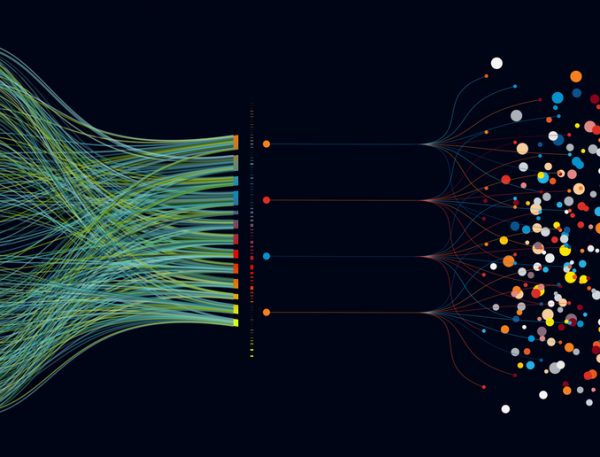
A partnership between a Japanese drugmaker and a US firm focused on real-world data, artificial intelligence and outcomes science aims to improve understanding of responses in patients with a form of leukemia that carries a certain genetic mutation
Boston-based Concerto HealthAI said Wednesday that it would work with Astellas Pharma to use real-world evidence to track responses in patients with relapsed or refractory acute myeloid leukemia (AML) whose disease carries mutations in the gene FLT3. Astellas markets a drug for FLT3-positive AML, Xospata (gilteritinib).
Xospata received Food and Drug Administration approval in November based on data showing it caused more patients’ tumors to disappear – known as a complete response – than standard-of-care chemotherapy. Last week, Astellas announced follow-up data from the Phase III study used for the drug’s approval showing that it also improved the median overall survival among patients. Another drug, Novartis’s Rydapt (midostaurin), is approved for first-line AML with FLT3 mutations, while more direct competition for Xospata could soon come from a third agent, Daiichi Sankyo’s quizartinib.
About 19,000 people are expected to have been diagnosed with AML last year, according to the American Cancer Society. FLT3 is the most common mutation, but it also confers a worse prognosis in the disease.
The partnership between Concerto HealthAI and Astellas will use the American Society of Clinical Oncology’s CancerLinQ Discovery database of de-identified cancer patient records, under an existing licensing agreement that the Concerto HealthAI has with it.
“As treatment options expand for AML, it’s more important than ever to understand how alternative approaches impact outcomes and how they might be improved,” Astellas vice president for oncology in the Americas Halit Bander said in a statement. “Identifying the real-world impact of existing treatments is an important complement to our work developing innovative new cancer medicines for patients with urgent, unmet needs.”

A Deep-dive Into Specialty Pharma
A specialty drug is a class of prescription medications used to treat complex, chronic or rare medical conditions. Although this classification was originally intended to define the treatment of rare, also termed “orphan” diseases, affecting fewer than 200,000 people in the US, more recently, specialty drugs have emerged as the cornerstone of treatment for chronic and complex diseases such as cancer, autoimmune conditions, diabetes, hepatitis C, and HIV/AIDS.
Separately from the Astellas deal, Concerto HealthAI said Monday that it had also partnered with New York-based drugmaker Pfizer to use the former’s eurekaHealth product, artificial intelligence models and real-world clinical electronic medical record and healthcare claims to advance work in precision oncology. And another partnership, announced in late March, involves the Boston-based company and another New York-based drug company, Bristol-Myers Squibb.
Photo: shuoshu, Getty Images













